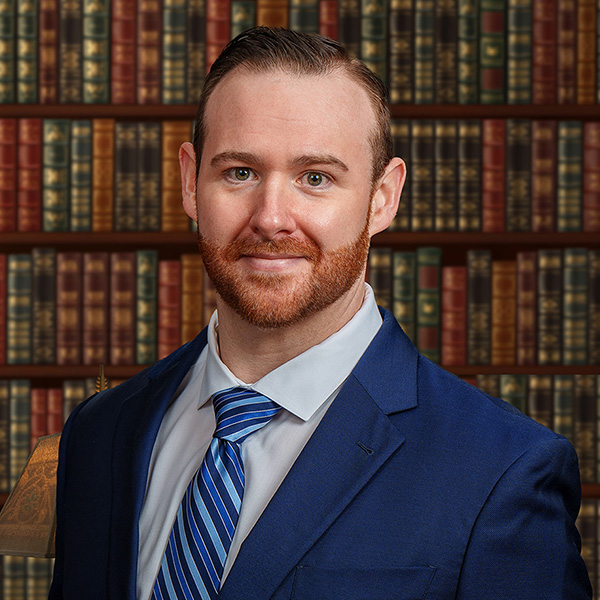When someone gets hurt on another person’s property in Pennsylvania, it may not always be their fault. Often, these accidents happen because of unsafe conditions on the property that could have been prevented. In Pennsylvania, if you slip, trip, or fall and are hurt on someone else’s property, this might be considered a premises liability case. These cases focus on whether the property owner was negligent. Negligence is a legal term that means someone did not take proper care to keep others safe. When a property owner is found to be negligent, they can be held responsible for the injuries that happen on their property. This is important because it helps protect people from getting hurt because of someone else’s carelessness.
Premises liability cases can involve different types of accidents. Sometimes people fall because there is something slippery on the floor, or they trip over something that wasn’t put away properly. Other times, there might be a hole or a broken step that causes someone to get hurt. Whether the injury happens inside a building or outside, the key question is whether the property owner knew about the dangerous condition and failed to fix it. When property owners don’t take action to fix these problems, they can be considered negligent. It is this negligence that forms the basis for a premises liability case. At, McDonald At Law, we are here to guide you through the legal process and help you navigate the complexities of your case.
Understanding Premises Liability in Pennsylvania
Premises liability is the area of law that deals with injuries occurring on someone else’s property. In Pennsylvania, property owners must ensure their property is safe for anyone who visits. This includes both business owners and homeowners. Property owners are responsible for fixing hazards or warning people about them. If they don’t, and someone gets injured, the owner can be held responsible. The legal term for this responsibility is called “duty of care.” Duty of care means that a property owner must keep their property reasonably safe and free of dangers. It is a way to make sure that people who visit or walk on the property are not put at risk.
“Highly Recommended” is the epitome of an understatement when it comes to the firm of McDonald At Law!! Michael McDonald’s genuine pleasant, and empathetic demeanor masks his legal astuteness, and the level of aggressiveness he implements in pursuit of a victim’s right and the monetary compensation legally entitled to us. I was involved in a motor vehicle accident at the hands of an intoxicated driver in York County. In my case I suffered what I described as an atypical injury, Mr. McDonald offered to be my Lawyer immediately after explaining to him the events leading to and after being struck in turn causing me to have a heart attack, when another law firm seemed hesitant. McDonald At Law secured a sizable monetary compensation that not only met my expectation but exceeded it. Mr. McDonald’s wealth of experience, and legal prowess is priceless and never did he act as the case was beneath his practice. In the end my family and I were well compensated, but also felt justified. Thank you McDonald At Law!!- Miguel Lopez
However, the type of visitor can also play a role in a premises liability case. In Pennsylvania, the law looks at whether the person who was injured was invited onto the property, such as a customer or a guest. These people are called “invitees” and have the most protection under the law. Property owners have the highest duty of care to invitees. They must inspect the property and make sure it is free of hazards. If the injured person was not invited, such as a trespasser, the owner’s responsibility might be lower. But, in many cases, a property owner still must keep their property in good condition, even for people who were not supposed to be there.
What Is Negligence in Premises Liability Cases?
Negligence is at the heart of most premises liability cases in Pennsylvania. When a property owner is negligent, it means they did not take the proper steps to prevent accidents from happening. Negligence can be proven in several ways. First, the injured person must show that the property owner had a duty to keep the property safe. Next, the injured person must prove that the owner did not meet this duty. This can happen if the property owner knew about a dangerous condition and failed to fix it. It can also happen if the owner should have known about the danger but didn’t take steps to check for hazards.
Negligence also includes showing that the property owner’s failure to act caused the injury. This means that if the owner had fixed the problem or warned the person about it, the injury would not have happened. Finally, the injured person must show that they suffered actual harm, like medical bills, pain, or other losses. If these things can be proven, the property owner can be held liable for the injury.
Putting off an Attorney due to Cost Choosing a Personal Injury AttorneyRelated Videos
One example of negligence is when a store owner knows that a floor is slippery because of a spill but does not clean it up or put up a warning sign. If someone slips and gets hurt, the owner may be found negligent. Another example is if a property owner knows that the railing on a staircase is broken but does nothing to fix it. If someone falls because of the broken railing, the owner may be responsible for the injuries.
How Pennsylvania Law Protects Injured People
Pennsylvania law is designed to protect people who are hurt because of someone else’s negligence. In a premises liability case, if the injured person can prove that the property owner was negligent, they may be able to recover compensation for their injuries. This compensation can help pay for medical bills, lost wages, and other costs related to the injury. The amount of compensation depends on several factors, including how serious the injury is and how much the injured person’s life has been affected.
In some cases, Pennsylvania law allows for something called “comparative negligence.” This means that even if the injured person is partly to blame for the accident, they can still recover compensation. However, the amount they receive might be reduced based on how much of the fault they share. For example, if a person was walking while texting on their phone and didn’t notice a hole in the sidewalk, they might be found partially responsible for their own injury. If the court decides that the injured person was 20% responsible and the property owner was 80% responsible, the injured person’s compensation would be reduced by 20%.
Comparative negligence makes sure that people can still get help even if they weren’t being as careful as they should have been. This is an important protection for people who are hurt on someone else’s property. It encourages property owners to always take their duty of care seriously, while also recognizing that accidents can be complicated and may involve more than one person’s actions.
Verdicts & Settlements
Common Types of Premises Liability Cases in Pennsylvania
Premises liability cases can arise from many different types of accidents. Some of the most common include slip and fall accidents, which happen when someone slips on a wet or slippery surface. These accidents often occur in grocery stores, restaurants, or parking lots where spills are common. Another common type of premises liability case is trip and fall accidents, where someone trips over an object or uneven surface that should have been fixed or removed.
Other cases involve accidents caused by poor lighting, broken stairs, or loose floorboards. When property owners do not maintain their buildings and grounds, it creates dangerous conditions that can lead to serious injuries. Dog bites can also fall under premises liability, especially when the owner fails to control their pet. Swimming pool accidents and elevator mishaps are other examples of premises liability cases in Pennsylvania. In each case, the main issue is whether the property owner was negligent and failed to take reasonable steps to keep visitors safe.
What To Do If You’re Hurt on Someone Else’s Property
If you are hurt on someone else’s property, it is important to take certain steps to protect your rights. First, try to get medical attention right away. Even if you don’t feel hurt at the moment, some injuries might not show up until later. By seeing a doctor, you will have proof of your injuries if you need to file a claim later.
It is also helpful to document the scene where the accident happened. If possible, take photos of the dangerous condition that caused your injury, whether it’s a broken step, a spill, or some other hazard. You should also try to get the names and contact information of anyone who witnessed the accident. This can help you if you need to prove that the property owner was negligent.
It’s important to report the accident to the property owner or manager as soon as possible. By doing this, you create a record that the accident happened. The property owner may try to fix the problem right away, so having a report of the incident can be useful when pursuing a premises liability claim.
If you have been injured on someone else’s property, the experienced attorneys at McDonald At Law are here to help. We understand the complexities of premises liability cases in Pennsylvania and can guide you through the process of proving negligence and recovering the compensation you deserve. Our dedicated team will work tirelessly to ensure that your rights are protected and that property owners are held accountable for their negligence.
Premises liability cases can be challenging, especially when dealing with insurance companies and legal procedures. McDonald At Law has the knowledge and experience to navigate these challenges and fight for the best outcome for you. Contact us today to discuss your case and learn how we can assist you in pursuing justice.



